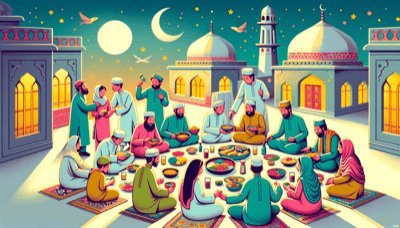We're here to help you keep count of the days to or since a date. Just click the button below and enter your chosen date to get started. Also choose the suggested days or search for a special day above #countingthedays

Eid-ul-Fitr, also known as Meethi Eid or the Festival of Breaking the Fast, is a significant religious holiday celebrated by Muslims in Pakistan to mark the end of Ramadan, the Islamic holy month of fasting. It falls on the first day of Shawwal in the Islamic lunar calendar.
The festival has its origins in the time of Prophet Muhammad (peace be upon him). It was instituted after the victory of the Battle of Badr, one of the major battles in Islamic history. Eid-ul-Fitr is a day of thanksgiving and jubilation as it signifies successful completion of fasting and self-discipline during Ramadan.
On this day, Muslims engage in several traditional practices:
Fitrana/Sadaqat al-Fitr: A form of charity given to the poor before the Eid prayers, meant to purify those who fast from any indecent act or speech and to help the poor and needy.
Eid Prayer: Congregational prayers are held in mosques or large open spaces called Eidgahs. People wear new or their finest clothes to perform these prayers.
Sweet Dishes: Special sweet dishes like siwayyan (vermicelli), sheer khurma (milk with dates), and other desserts are prepared and shared among family and friends.
Family Gatherings: Families visit each other's homes. Children often receive gifts or money, known as Eidi, from elders.
Festive Meals: After fasting for a month, people enjoy festive meals throughout the day with relatives and friends.
The atmosphere across Pakistan during Eid-ul-Fitr is one marked by festivity, with streets and homes beautifully decorated. It's both a deeply spiritual event as well as a time for community bonding.